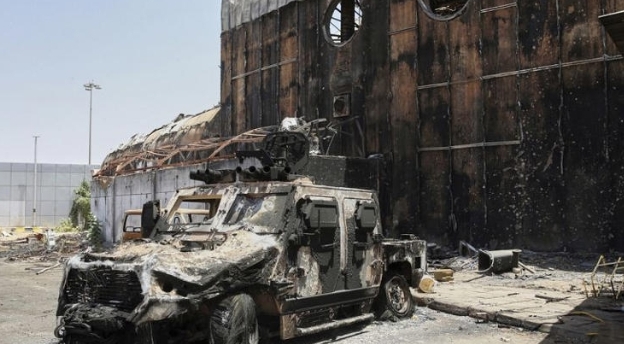Sudan accuses UAE of aiding genocide through support for rebel forces; UAE denies charges as ICJ considers case amid ongoing civil war.
Sudan Accuses UAE of Aiding Genocide at UN Court


Sudan accused the United Arab Emirates before the United Nations' highest court on Thursday of violating the Genocide Convention by allegedly arming and funding the rebel paramilitary group, the Rapid Support Forces (RSF)—a claim strongly contested by the UAE.
Sudan has petitioned the International Court of Justice (ICJ) to issue emergency directives, known as provisional measures. These would compel the UAE to take all necessary actions to prevent massacres and other atrocities reportedly committed against the Masalit people amid Sudan’s ongoing two-year civil war.
"The genocide against the Masalit is being carried out by the Rapid Support Forces, primarily composed of Darfur Arabs, with the support and complicity of the United Arab Emirates," Sudan’s Acting Justice Minister Muawia Osman stated during opening arguments at the Hague tribunal.
Following Sudan’s presentation, the UAE government responded in a statement saying, “Everything said in court was circumstantial and did not meet a standard of proof. No credible evidence was presented to support their claims.”
Both Sudan and the UAE are signatories to the 1948 Genocide Convention. However, the UAE has entered a reservation to part of the treaty, which international legal scholars believe could hinder the case’s progress.
"The ICJ has already affirmed that this kind of reservation is valid and can act as a barrier to continuing a case. It is very likely the court will take a similar stance here, meaning the case may not proceed," explained Melanie O'Brien, associate professor of international law at the University of Western Australia and an expert on the Genocide Convention, in an interview with The Associated Press.
Sudan plunged into a deadly conflict in April 2023, when escalating tensions between the army and paramilitary rebels erupted in the capital, Khartoum, and spread to other parts of the country. Both the RSF and the Sudanese armed forces have been accused of committing serious human rights violations.
The United Arab Emirates, a federation of seven sheikhdoms on the Arabian Peninsula and a close ally of the United States, has repeatedly been accused of providing arms to the RSF. The UAE has consistently denied the allegations, despite mounting evidence suggesting otherwise.
Conflict Observatory, a U.S. State Department-funded monitoring organization tracking the war in Sudan, has identified flights believed to be transporting weapons from the UAE to Sudanese security forces. These flights reportedly transited through Maréchal Idriss Déby International Airport in Amdjarass, Chad. The UAE insists the flights were solely intended to support a local hospital.
In January, the U.S. Treasury Department imposed sanctions on RSF leader Mohammad Hamdan Daglo Mousa, commonly known as Hemedti, along with seven RSF-linked companies operating in the UAE. One of the sanctioned entities was involved in gold trading, with gold likely smuggled from Sudan. The sanctions followed a U.S. declaration that the RSF was perpetrating acts of genocide.
According to United Nations data, the conflict has resulted in over 24,000 deaths and displaced more than 14 million people—approximately 30 percent of Sudan’s population. An estimated 3.2 million Sudanese have fled to neighboring countries.
Sudanese government forces have since regained control over much of Khartoum from the RSF. Last month, the army announced it had retaken Khartoum International Airport.

 বাংলা
বাংলা  Spanish
Spanish  Arabic
Arabic  French
French  Chinese
Chinese 
